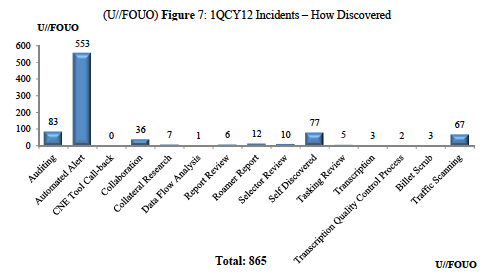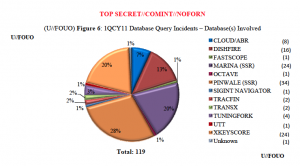ACLU [and congress] Has Standing to Know What It Is Debating
It is fundraising week(ish) here at Emptywheel. If you can, please support the site.
In superb news, the FISA Court has agreed to release to ACLU whatever Section 215 opinions are not already covered by a 2011 FOIA suit ACLU filed in Southern District of New York.
In an important decision, the Foreign Intelligence Surveillance Court ordered the government to review for release the court’s opinions on the meaning, scope, and constitutionality of Section 215 of the Patriot Act. The ruling is on a motion filed by the American Civil Liberties Union, the ACLU of the Nation’s Capital, and Yale Law School’s Media Freedom and Access Information Clinic. Section 215, which authorizes the government to obtain “any tangible things” relevant to foreign-intelligence or terrorism investigations, is the claimed legal basis for the NSA’s mass phone records collection program.
“We are pleased that the surveillance court has recognized the importance of transparency to the ongoing public debate about the NSA’s spying,” said Alex Abdo, staff attorney with the ACLU National Security Project. “For too long, the NSA’s sweeping surveillance of Americans has been shrouded in unjustified secrecy. Today’s ruling is an overdue rebuke of that practice. Secret law has no place in our democracy.”
The decision was based on a determination that, since ACLU is so central in these debates, it has standing to make such a request.
The Court ordinarily would not look beyond information presented by the parties to find that a claimant has Article III standing. In this case, however, the ACLU’s active participation in the legislative and public debates about the proper scope of Section 215 and the advisability of amending that provision is obvious from the public record and not reasonably in dispute. 11 Nor is it disputed that access to the Section 215 Opinions would assist the ACLU in that debate. The Court therefore concludes that the ACLU has satisfied that requirement. See, Ohio Citizen Action v. City of Englewood, 671 F.3d 564, 579 (6th Cir. 2012). Accordingly, the Court finds that the withholding from the ACLU of the Section 215 Opinions constitutes a concrete and particularized injury in fact to the ACLU for purposes of Article III standing.
11 See e.g., Michelle Richardson, Legislative Counsel, ACLU Washington Legislative Office, Misdirection: The House Intelligence Committee’s Misleading Patriot Act Talking Points (June 20, 2013) (https://www.aclu.org/blog/national-security/misdirection-house-intelligencecommittees-misleading-patriot-act-talking); Testimony of Jameel Jaffer, Deputy Legal Director of the ACLU Foundation, and Laura W. Murphy, Director, Washington Legislative Office, ACLU, before the Senate Judiciary Committee Hearing on Strengthening Privacy Rights and National Security:
In truth, after Monday’s document dump, this decision may be more about precedent than expanded releases. Because it is limited to substantive decisions on Section 215 — and wouldn’t include every time a judge pulls more hair out upon being informed of yet another “violation” — there may not be many more decisions to release (unless, as I have wondered, there have been significant violations since 2009).
But there is another part of this decision that may be even more important, from the standpoint of precedent. It gives this brief nod to the amici, calling out the Members of Congress specifically (the other amici were journalism organizations, which, like the third party with ACLU, Media Freedom and Information Access Clinic, might have been denied standing), for its claim to standing.
Assuming that there are such Section 215 Opinions that are not at issue in the FOIA litigation, movants and amici have presented several substantial reasons why the public interest might be served by their publication.
[snip]
Congressional amici emphasize the value of public information and debate in representing their constituents and discharging their legislative responsibilities.
Remember, the Congressional amici argued they can’t do their job without being able to discuss public FISC opinions.
Notwithstanding the compelling public interest in an open debate about the scope and propriety of government surveillance programs authorized under FISA, even the amici — Members of the U.S. Congress — cannot meaningfully participate in that public debate so long as this Court’s relevant decisions and interpretations of law remain secret. Read more →


